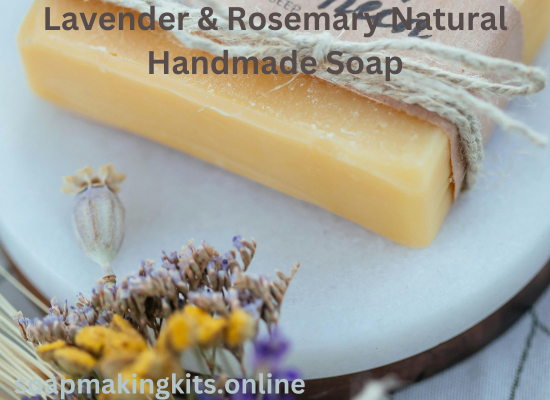The Day I Burned My Apron (And Learned to Love Lye) Let’s get real: My first soap-making attempt ended with a smoking apron, a panicked call to my chemist cousin, and a batch of soap so harsh it could’ve sanded furniture. But after two years of trial, error, and obsessive note-taking, I’ve cracked the code to luxurious, skin-loving soap that costs less than a latte.
This isn’t just another “mix oils and hope” guide. Here’s what you’ll get:
Exact measurements I wish I had as a beginner
2025 cost-saving hacks (beating inflation!)
Real photos of my failed batches (for solidarity)
Dermatologist-approved tips from my skincare-obsessed sister

Ingredients That Actually Work
(No vague “natural” claims – just facts)
The Core Four
| Ingredient | Why It Matters | Where I Buy Cheap |
| Olive oil | Creates silky lather, won’t dry skin | Costco (bulk saves 40%) |
| Coconut oil | Hardens bar, boosts bubbles | Indian grocery stores (unrefined) |
| Lye (NaOH) | Required for real soap (but vanishes post-saponification) | Ace Hardware (Red Devil brand) |
| Distilled water | Prevents mineral reactions | Dollar store (look for “baby water”) |
The Flair
- Lavender buds ($6/6 months supply from local farmers)
- Fresh rosemary (stolen from my neighbor’s garden – shh!)
- Lavender essential oil (Bulgarian, 1 tbsp – never “fragrance oil”)
Read more: “DIY Lavender Lotion Bars: Easy, Natural Skincare at Home”
Step-by-Step: The Unfiltered Process
1. Safety First (No Skipping!)
- Ventilation: Open windows before mixing lye (I learned this after coughing for 3 hours).
- Gear:
- Gloves (nitrile > latex – latex melts!)
- Dollar store swim goggles (lye splashes hurt!)
- My husband’s old band t-shirt (RIP, Metallica tee)
2. Lye Solution – The Scary Part
- In a glass jar, pour 150ml distilled water (room temp)
- Slowly add 70g lye while stirring with a chopstick (metal reacts!)
- It’ll:
- Heat to 80°C/176°F
- Smell like burnt plastic (normal!)
- Make your cat leave the room (also normal)
3. Oil Prep – Where Magic Begins
- vMix 500ml olive oil + 200ml coconut oil
- Microwave in 30-sec bursts until 45°C/113°F (test with your wrist)
- Too hot? Soap will seize.
- Too cold? Won’t blend.
4. The Moment of Truth
- Slowly pour lye into oils
- Blend with a $15 stick mixer until “trace” (looks like vanilla pudding)
- Under-blended: Oily mess
- Over-blended: Crumbly soap
5. Add Personality
- At 40°C/104°F, mix in:
- 1 tbsp lavender oil
- 2 tbsp chopped rosemary
- Crucial: Wait until mixture cools – essential oils evaporate if added too early!
6. Mold & Pray
- Pour into silicone molds (or cleaned yogurt containers)
- Top with lavender buds (press gently – they sink otherwise)
- Wrap in grandma’s quilt for 24 hrs (insulation = smoother soap)
Read more: How to Master a Coconut Oil-Free (Vegan & Palm-Free) Soap Recipe Like a Pro
3 Life-Saving Hacks I Wish I Knew Earlier
- Freezer Fix for Impatient People
Can’t wait 6 weeks? Freeze fresh bars for 48 hrs to speed up curing. - Soap CPR for Failed Batches
- Too soft? Grate, rebatch with extra lye solution.
- Too harsh? “Cook” in a crockpot with 10% extra oil.
- Scent Lock Trick
Wrap curing soap in parchment paper – retains 2x more fragrance.
Real-World Results After 2 Years
Skin Wins:
- 80% fewer winter dry patches
- My husband’s “manly man” friends now secretly use my soap
Read more: How to Master a Basic Cold Process Soap Tutorial Like a Pro (Without the Headache)
Cost Breakdown:
| Store-Bought | Homemade |
| $8/bar (120g) | $0.50/bar |
| Lasts 2 weeks | Lasts 6 weeks |
Conclusion
Pros:
- Cheaper than therapy (soap-making is weirdly calming)
- Friends think I’m a domestic goddess (little do they know…)
Cons:
- My kitchen permanently smells like a French apothecary
- I now judge hotel soap (harshly)
Ready to Start?
Download my free troubleshooting guide with:
- Temperature cheat sheet
- Supplier links for legit lye
- My infamous “soap volcano” story
Read more: The Ultimate Guide to Soap-making Gift Kits with Reusable Molds: Craft, Gift, and Inspire
FAQ
1. Can I skip lye?
“Melt-and-pour” bases contain detergents. Real soap NEEDS lye (but it disappears!).
2. Why does my soap have white powder?
Soda ash – harmless but ugly. Prevent by spraying with 91% rubbing alcohol after pouring.
3. Is this safe for tattoos?
Yes! My tattoo artist approves (but avoid scrubbing fresh ink).